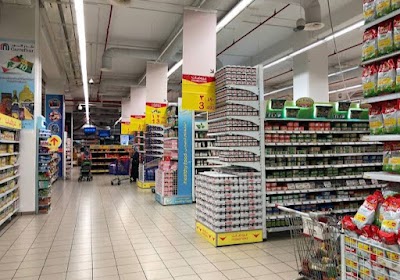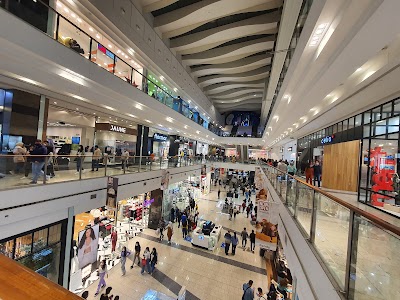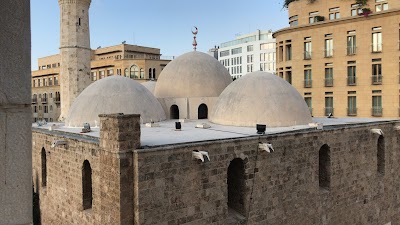Beirut City Center (مركز مدينة بيروت)
Overview
Beirut City Center, an intriguing blend of the old and new, stands as a testament to Beirut’s resilience and vibrant culture. Located in the heart of Lebanon's capital, this area has transformed over the decades into a focal point for both locals and international visitors. Teeming with historical landmarks, contemporary attractions, and a lively marketplace, it provides a unique insight into the city's rich past and dynamic present.
Historical Significance
The history of Beirut City Center is as layered as the city itself, dating back thousands of years. As one of the oldest cities in the world, Beirut has witnessed the rise and fall of numerous civilizations. The downtown area, often referred to as the Central District, has served as a bustling hub for trade and culture since Phoenician times. Roman relics, Ottoman buildings, and French Mandate-era architecture stand side by side, offering a glimpse into the diverse historical influences that have shaped the city.
Martyrs' Square
No visit to Beirut City Center is complete without a stop at Martyrs' Square. This iconic landmark commemorates the 1916 executions of Lebanese nationalists by Ottoman authorities, symbolizing Lebanon's struggle for independence. Over the years, the square has evolved into a significant gathering spot for political and social events, resonating deeply with the Lebanese spirit of resilience and unity.
Reconstruction and Modernization
In the post-civil war era of the 1990s, extensive reconstruction efforts were spearheaded by Solidere, a private real estate company. The project aimed to restore and modernize the city center while preserving its historical essence. Today, the area boasts a remarkable array of restored buildings, modern office spaces, and luxurious residential apartments. Visitors can explore Beirut Souks, a modern shopping precinct inspired by traditional Lebanese markets, where international brands coexist with local artisan boutiques and culinary delights that range from fine dining to delectable street food.
Historical Treasures
Just a few steps away from the bustling modernity lies the historical Roman Baths, an archaeological gem in the city center. These ancient ruins, which were once part of the Roman city's public baths, now serve as a serene archaeological park. Visitors can stroll through the remains of heated rooms, boiler rooms, and water tanks, gaining insight into the sophisticated engineering of ancient Roman Lebanon.
Architectural Wonders
The Mohammad Al-Amin Mosque, also known as the Blue Mosque, is another jewel in the city center's skyline. Completed in 2008, this majestic mosque features striking Ottoman-inspired architecture with towering minarets and a stunning blue dome. It serves as a powerful symbol of faith and cultural pride, making it a must-visit site for those interested in exploring the religious diversity and architectural grandeur of Beirut.
In close proximity, the Saint George Maronite Cathedral showcases the beauty of Lebanese stone masonry and holds significance for the Maronite Christian community. The close proximity of the mosque and cathedral exemplifies the coexistence of different religious communities in Beirut, reflecting the city's diverse cultural fabric.
Art and Nightlife
Art lovers will appreciate the Beirut Art Center, which offers contemporary art exhibitions highlighting local and international artists. This space thrives with the creative pulse of the city, providing a platform for artistic expression and cultural dialogue.
For those seeking to experience the city’s nightlife, head over to Gemmayzeh or Mar Mikhael, neighborhoods adjacent to the city center. These areas come alive after dark, featuring vibrant bars, cafés, and restaurants that attract a cosmopolitan crowd. Enjoy live music, Lebanese mezze, and a warm, welcoming atmosphere for an unforgettable evening.
Accessibility and Local Markets
Tourists will find the Beirut City Center easily accessible, with various transport options including taxis, a developing public transit system, and walking-friendly streets. While exploring, be sure to visit the Beirut Souks farmers market, Souk el Tayeb, where you can sample organic produce, traditional Lebanese foods, and handmade crafts.
Overall, Beirut City Center stands as an emblem of the city's historical depth and future aspirations. It encapsulates the spirit of a place that has risen repeatedly through its trials, offering visitors a rich tapestry of experiences, from ancient ruins and historical landmarks to modern luxuries and cultural vibrancy. Whether wandering through its historic sites, indulging in local cuisine, or simply soaking in the unique atmosphere, the city center provides an enriching glimpse into the heart of Beirut. Enthusiastic, resilient, and ever-changing, Beirut City Center is a must-visit for any traveler looking to truly understand the essence of this timeless city.







